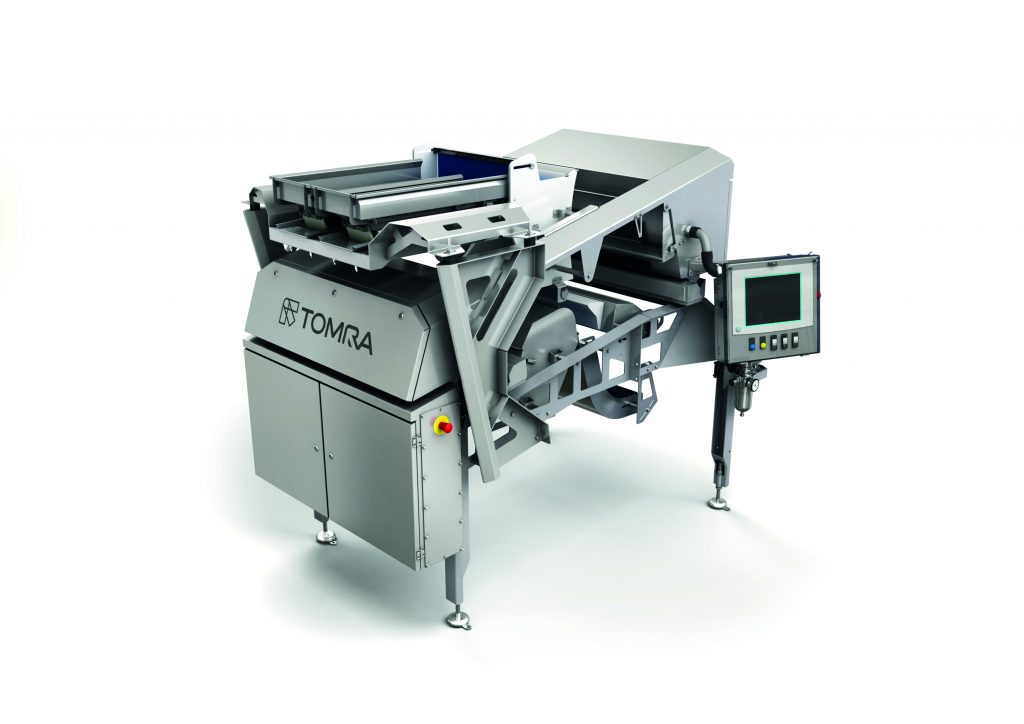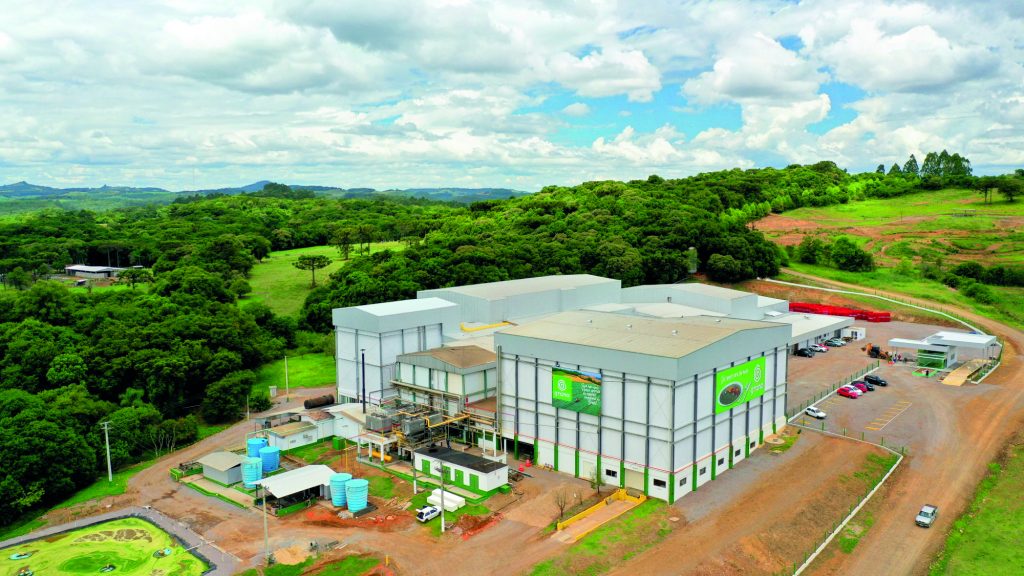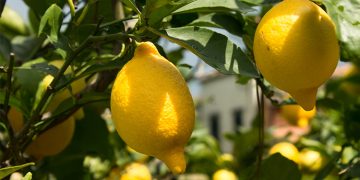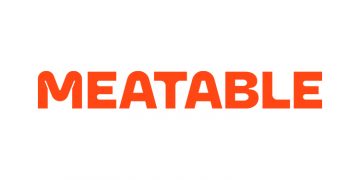Grano Alimentos, a leading company in the production and commercialization of frozen vegetables in Brazil, is pioneering automation in its sector and has acquired the first sorting machine for its production line.
The frozen fruit and vegetable market in Brazil has been growing at a very fast pace in recent years, with annual consumption of frozen vegetables (excluding fruits, stalks and root vegetables) exceeding 55 thousand tons, according to the latest available data. This increase is due to quality, convenience and sustainability.
 The high quality begins with the seed selection and continues all the way the final packaging of the products, with no addition of preservatives. The vegetables are harvested, cut, sanitized, blanched (hot process), frozen and packaged. The convenience of this product lies in that consumer can use the desired quantity and keep the rest for later in the same packaging; its sustainability in that both seller and consumer are able to avoid waste.
The high quality begins with the seed selection and continues all the way the final packaging of the products, with no addition of preservatives. The vegetables are harvested, cut, sanitized, blanched (hot process), frozen and packaged. The convenience of this product lies in that consumer can use the desired quantity and keep the rest for later in the same packaging; its sustainability in that both seller and consumer are able to avoid waste.
The appearance of COVID-19 in 2020 has driven an increase in the demand for healthy and sanitized food – and consequently also for frozen vegetables.
The entire vegetable production chain – from the primary inputs sector to the distribution network – has been evolving, adopting new production, harvesting, packaging and post-harvest technologies (handling, transportation, conservation and sorting of products) to meet the new demands of the market. The aim is to replace imports with local production, which needs to be competitive.
To help this exponentially growing market, which relies heavily on manual processes, TOMRA Food presents the Blizzard sorting machine featuring a pulsed LED camera – the most cost effective and efficient optical sorting equipment for the IQF (Individually Quick Frozen) fruit and vegetable industry.
 Grano Alimentos chooses Blizzard for the automation of its production line
Grano Alimentos chooses Blizzard for the automation of its production line
With 20 years in the market, Grano Alimentos is a national producer and market leader in Brazil in the sale of frozen vegetables. The company currently holds a market share of around 42%. It has recently invested in cutting-edge technology with the purchase of the first Blizzard equipment in Brazil. “During a business trip in Europe, we visited several frozen vegetable plants, and we saw that the major vegetable processors had TOMRA machines. In addition, we found the right solution for our operation, so we had no doubts when the time came to choose,”explain the directors of Grano Alimentos.
Grano Alimentos’ objective is to grow in the domestic market with their product portfolio, as well as investing in export markets – both of which are very demanding in terms of quality standards. For the company manager, “the quality gains with TOMRA equipment will be very high. It will give our a technological advantage that will allow us to consilidate our market leadership, both in quality and in quantity.” The management at Grano Alimentos has no doubts about their choice, and appreciate “the cost benefit of the Blizzard sorting machine, together with its very compact size which takes up little space on the line. It will deliver even higher food quality and safety.” They are open to further investments based on their confidence in the Blizzard sorter: “we will certainly continue to invest in advanced sorting technology, and we will further strengthen our line with new machines, also in other processing stages.”
A machine focused on efficiency at a competitive price

João Medeiros, Sales Manager at TOMRA Food Brazil, explains: “the Blizzard machine is an optical sorter designed to reduce the gap between cost and efficiency. The cameras are combined with pulsed LED light, which greatly enhances the contrast in the vegetables’ imaging, easily detecting defects in color, shape and foreign materials. The cameras have an accuracy very close to that achieved by sorters using laser technology. This results in greater efficiency in the removal of nonstandard products and foreign materials from the production line. In addition, the Blizzard sorter has a very compact design, which saves space and fits very well in most production lines. The low cost of ownership combined with a competitive price means that it is not financially challenging for producers to incorporate this sorter into their plants.”
The Blizzard sorter’s LED lights have a life expectancy of 50,000 hours, which is much longer than the 9,000 hours of traditional lights. This results in lower costs for replacing bulbs and less downtime – a significant benefit when under time pressure during the harvest season. The Blizzard sorter also delivers production time and cost savings because it can be used in different places on the production line, depending on the product being sorted: on receipt, immediately after the freezing tunnel and after storage.
It is worth highlighting the Blizzard’s sorting accuracy, which is key to achieving consistently high quality. The unwanted product is removed with such precision that waste of saleable product is minimized and yield is maximized. This is due to the intensity of the pulsed LED lights, which ensures a more accurate sorting than traditionally lit machines. Operators also appreciate the exceptional stability provided by the combination of cameras and LED lights: despite difficult and sometimes dirty working conditions, the Blizzard sorters’s performance does not deteriorate significantly over a long shift.
With a proven performance across the world, “the Blizzard sorter offers a very good cost-efficiency ratio. It has delivered an excellent performance on frozen fruit and vegetable processors around the world. Here in Brazil, customers are increasingly looking for new technologies to improve the yield of their production lines and TOMRA has a complete portfolio, capable of serving the most varied types of customers and segments in the food sector. We always seek to understand the specific requirements of each project and we recommend the right technology that will meet the customer’s expectations, coupled with the best cost and efficiency,” adds João Medeiros.




















